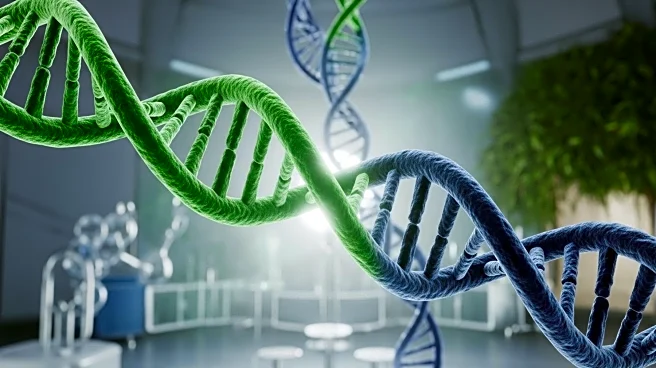What's Happening?
Scientists are exploring the use of synthetic biology to genetically modify wildlife, aiming to make species more resilient to climate change and diseases. This approach involves using genetic tools to enhance
the survival capabilities of plants and animals, such as making corals more heat-resistant or frogs immune to diseases like chytrid fungus. The scientific community is divided on whether these genetically modified organisms should be released into the wild. The World Conservation Congress is considering a moratorium on such releases, highlighting the controversy surrounding potential ecological impacts and ethical considerations. Proponents argue that synthetic biology could be a vital tool in conservation efforts, while opponents caution against unforeseen consequences and the alteration of natural ecosystems.
Why It's Important?
The debate over genetically modifying wildlife is significant as it touches on the broader issues of biodiversity conservation and ecological integrity. With over a million species facing extinction due to climate change and habitat loss, synthetic biology offers a potential solution to preserve endangered species. However, the risks associated with releasing genetically modified organisms into the wild could lead to unpredictable ecological changes, potentially disrupting existing ecosystems. The decision by the World Conservation Congress could influence global conservation policies and funding for research in synthetic biology, impacting how future conservation efforts are shaped.
What's Next?
The World Conservation Congress's vote on the proposed moratorium will be a pivotal moment in the debate over synthetic biology in conservation. If the moratorium is enacted, it could slow down research and implementation of genetic modification techniques in wildlife conservation. Conversely, rejecting the moratorium might encourage more research and development in this field, potentially leading to new conservation strategies. Stakeholders, including governments, conservationists, and researchers, will need to navigate the ethical and ecological implications of these technologies as they decide on their use in preserving biodiversity.
Beyond the Headlines
The use of synthetic biology in conservation represents a paradigm shift from traditional methods of safeguarding nature to potentially redesigning it to fit human needs. This raises philosophical questions about humanity's relationship with the natural world and whether genetic engineering could alter our perception of nature's intrinsic value. As humans have historically impacted ecosystems, the debate continues on whether genetic modification is a natural progression or a step too far in conservation efforts.










